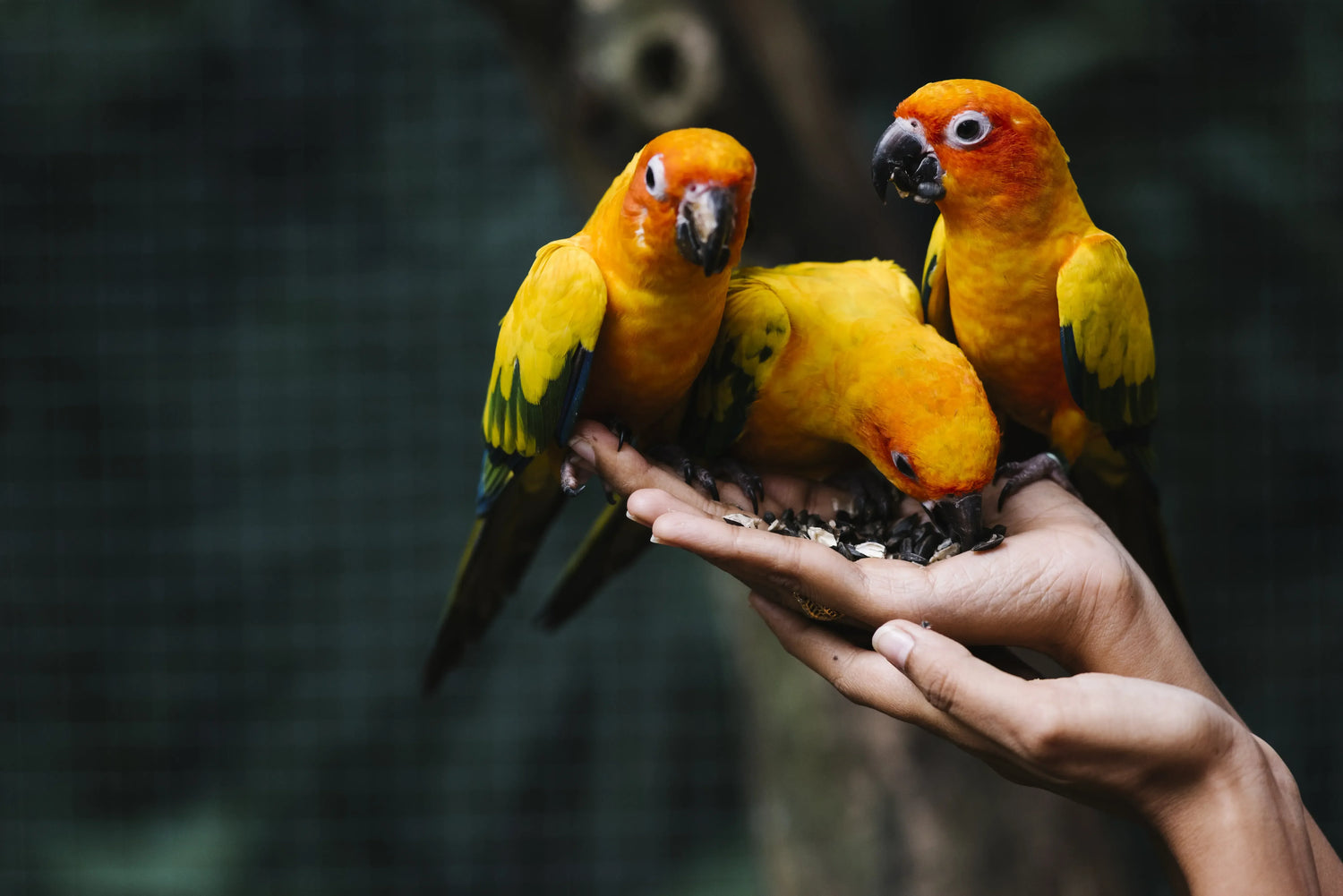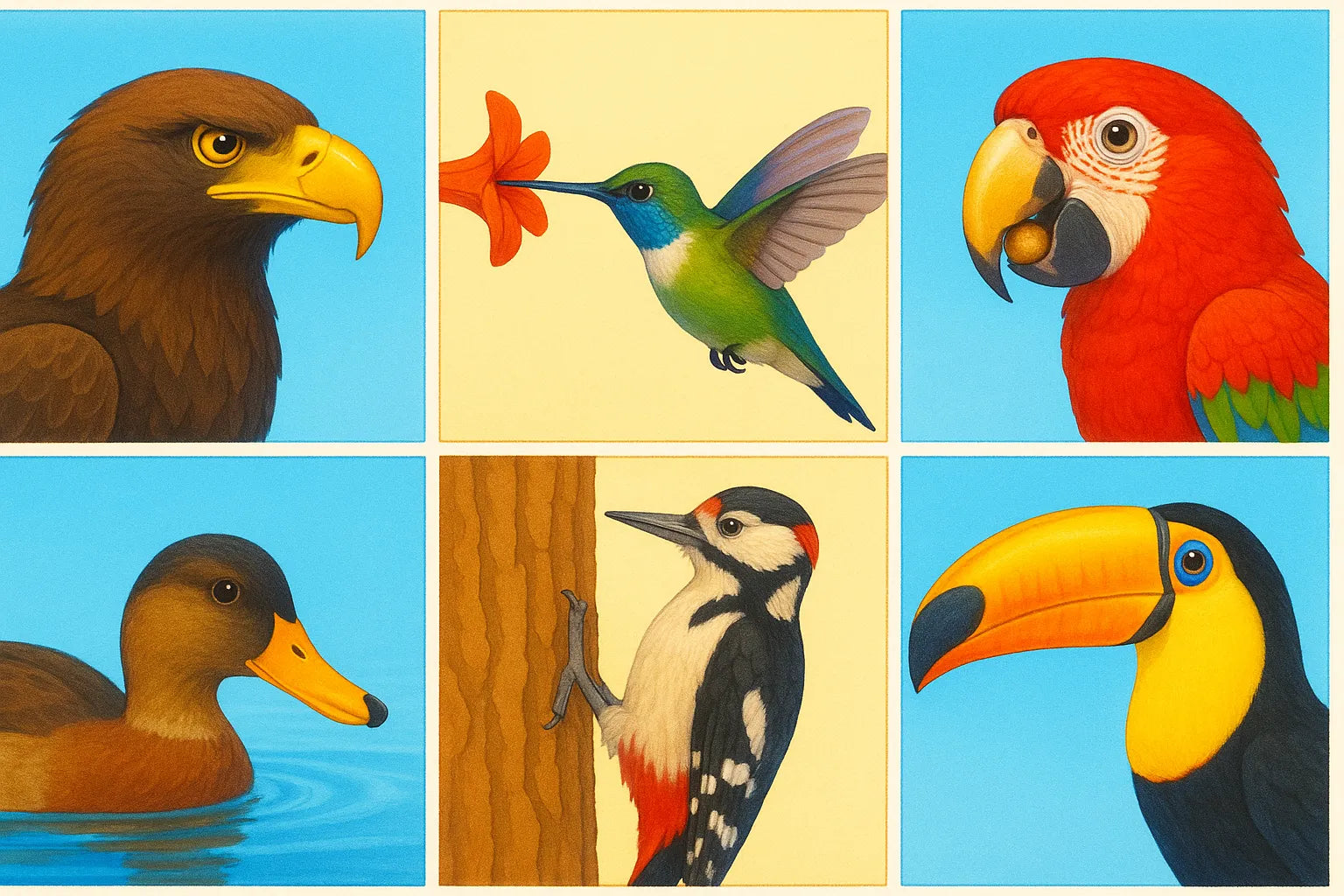Keeping pet birds has been a cherished tradition for centuries. From the lively parakeet to the elegant cockatoo, birds bring color, music, and personality into our homes. But before welcoming one into your life, it’s essential to understand which species are beginner-friendly, what care they need, and how to build a happy environment for your feathered friend.
🕊️ Why Do People Love Pet Birds?
Pet birds aren’t just pets—they’re companions that sing, mimic words, and brighten daily routines. Many owners love their intelligence, curiosity, and affectionate nature. Unlike dogs or cats, they don’t need outdoor walks, but they do need mental stimulation, social interaction, and a safe environment.
🐤 Best Pet Birds for Beginners
Choosing the right species matters. Here are some of the most popular and beginner-friendly pet birds:
- Budgerigar (Parakeet) – Playful, social, and small, perfect for first-time bird owners.
- Cockatiel – Gentle, whistling charmers that love head scratches.
- Lovebird – Colorful, affectionate, and best kept in pairs.
- Canary – Famous for their beautiful singing, though less hands-on than parrots.
- Finches – Low-maintenance birds that thrive in groups.
👉 For experienced owners, larger parrots like African Greys or Macaws are intelligent and trainable, but they require more time and commitment.
🍏 Diet and Nutrition for Pet Birds
A healthy diet is the foundation of a long, happy bird life. The common mistake is feeding only seeds. Instead, offer:
- Pellets (60–70%) – Balanced nutrition designed for pet birds.
- Fresh vegetables (20–25%) – Dark leafy greens, carrots, broccoli.
- Fruits (5–10%) – Apples, berries, mango (in moderation).
- Seeds & nuts – Treats, not the main diet.
⚠️ Avoid avocado, chocolate, caffeine, alcohol, and salty foods—they are toxic to birds.
🏡 Housing and Enrichment
Birds need more than a cage—they need a stimulating home:
- Cage size – Bigger is always better; horizontal space matters more than vertical.
- Perches – Natural wood perches of different thicknesses prevent foot problems.
- Toys – Rotating chew toys, puzzles, and bells prevent boredom.
- Out-of-cage time – Most parrots need at least 2–3 hours daily outside their cage.
🧠 Training and Bonding
Birds are smart, and training strengthens your bond. Start with:
- Step-up command – Teaching your bird to hop on your finger.
- Target training – Using a stick or finger as a guide.
- Speech & sound imitation – Budgies and parrots can learn words, whistles, and tunes.
Positive reinforcement with treats works best. Never punish—trust takes time to build.
🩺 Common Health Issues in Pet Birds
Healthy birds are alert, vocal, and active. Watch for warning signs like:
- Fluffed feathers all day.
- Lack of appetite.
- Sneezing or nasal discharge.
- Changes in droppings.
Annual checkups with an avian vet are highly recommended.
📊 Comparison of Popular Pet Birds
| Species | Lifespan | Talking Ability | Noise Level | Beginner-Friendly? | Social Needs |
|---|---|---|---|---|---|
| Budgie | 7–15 years | ⭐⭐⭐ | Low | ✅ Yes | High |
| Cockatiel | 10–20 years | ⭐⭐ | Medium | ✅ Yes | Medium |
| Lovebird | 10–15 years | ⭐ | Medium | ✅ Yes (pair) | Very High |
| African Grey | 40–60 years | ⭐⭐⭐⭐⭐ | High | ❌ No (advanced) | Very High |
| Macaw | 50+ years | ⭐⭐⭐⭐ | Very High | ❌ No (advanced) | Extremely High |
❓ FAQ: Common Questions About Pet Birds
F: Are pet birds noisy?
A: It depends on the species. Budgies and canaries are relatively quiet, while cockatoos and macaws can be very loud.
F: Do all pet birds talk?
A: No. Only certain parrots, like African Greys and budgies, are skilled at mimicking speech. Others communicate with chirps, whistles, or songs.
F: How much time should I spend with my bird daily?
A: Most parrots need at least 1–3 hours of direct interaction. Smaller birds like finches require less handling but still benefit from your presence.
F: Are birds good pets for children?
A: Yes, but supervision is key. Smaller species like budgies or finches are better for families, while large parrots can be overwhelming for kids.
F: What’s the biggest mistake new bird owners make?
A: Feeding only seeds and not providing enough mental stimulation. Birds need variety in diet and regular enrichment to stay healthy.
🌟 Conclusion: Is a Pet Bird Right for You?
Bringing a pet bird into your home can be one of the most rewarding decisions you make—but only if you’re ready for the responsibility. Birds are intelligent, emotional, and social beings that require time, patience, and care. Choose a species that fits your lifestyle, provide a healthy diet, create a stimulating environment, and you’ll gain not just a pet—but a feathered family member for years to come.




Leave a comment
All comments are moderated before being published.
This site is protected by hCaptcha and the hCaptcha Privacy Policy and Terms of Service apply.